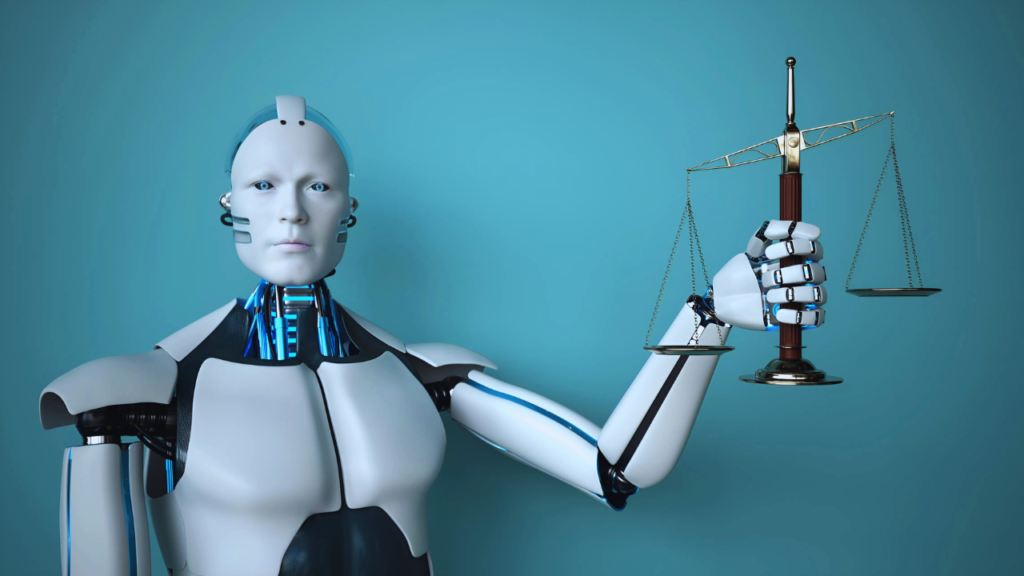In a case that has captured global attention, a young boy attempted something never seen before in the legal world. He tried to use an AI chatbot as his lawyer in a real court hearing. While this might sound like a scene from a science fiction movie. It happened and has triggered discussions around the role of artificial intelligence (AI) in the judicial system. As courts and governments around the world grapple with the growing presence of AI in our lives. This case has become a turning point for how technology could reshape the justice system in the coming years.
What Happened: The Unusual Legal Move
The incident reportedly occurred in the United States, where a young boy, guided by a legal activist, was scheduled to appear in traffic court. Rather than hiring a traditional lawyer, he relied on a smartphone app powered by an AI bot. The app was designed to assist him during the trial by delivering real-time legal advice through an earpiece.
A startup called DoNotPay developed this AI bot to analyze legal questions and deliver quick, accurate responses based on relevant laws and precedents. Designed to help users contest traffic tickets and handle minor legal disputes, the bot aims to eliminate the need for costly legal fees by offering an accessible alternative to traditional legal representation. The AI would listen to the courtroom arguments and whisper back suitable legal responses to the defendant through the earpiece, making the boy act as a mouthpiece for the bot.
Legal System Pushback: Why It Was Stopped
Although the idea was fascinating, the plan was stopped before the trial could begin. Court officials raised concerns about the legality of using AI in such a direct and unregulated way during live proceedings. The court considered this an act of “unauthorized legal practice” and warned that such use of AI could breach court protocols, compromise the fairness of the hearing, and possibly lead to contempt charges.
According to legal ethics and professional standards, only licensed attorneys are allowed to represent people in court. Using an AI bot in this capacity challenges that rule—and raises the question: Can a machine act as a lawyer?
The Bigger Picture: Why AI Is Entering the Legal World
This incident is not just about a boy and a chatbot—it reflects a much larger trend. Across the world, AI is slowly becoming a part of the legal landscape. Law firms now use AI to review contracts, summarize case law, and predict the likely outcomes of trials. AI tools save time, reduce costs, and make legal services more accessible.
The rise of platforms like DoNotPay, which claims to be “the world’s first robot lawyer,” shows how technology can help people who can’t afford traditional legal help. Many everyday issues—like parking tickets, landlord disputes, or consumer complaints—don’t necessarily require a human lawyer, and AI tools are becoming increasingly effective at handling such cases.
Opportunities: What AI Can Do for the Justice System
If used wisely and ethically, AI can improve the legal system in several ways:
- Access to Justice: Millions of people around the world cannot afford legal representation. AI could offer a low-cost or free alternative.
- Faster Case Resolution: AI can process large amounts of legal data quickly, helping courts resolve cases faster.
- Standardized Legal Advice: For common legal issues, AI can provide reliable and consistent guidance.
- Reduced Backlog: By automating paperwork and repetitive tasks, AI can help reduce the overwhelming backlog of court cases.
Risks and Concerns: Why Courts Are Wary
Despite the promise, there are serious concerns about letting AI into courtrooms:
- Accountability: If an AI bot gives wrong advice, who is responsible?
- Bias: AI systems can sometimes inherit biases from the data they are trained on, which could lead to unfair outcomes.
- Security and Privacy: AI systems that process sensitive legal data must be extremely secure, or they risk exposing personal and confidential information.
- Legal Ethics: The idea of a non-human “practicing” law raises questions about professional standards and qualifications.
What Experts Say: A Mixed Response
Legal experts have mixed reactions to the case. Some say that while the technology is exciting, we are not ready to let robots argue in courtrooms. They believe that AI tools should be used to support human lawyers, not replace them. Others argue that innovation is necessary, and the legal system must evolve to serve more people at a lower cost.
The creators of the AI bot involved in this case have vowed to improve the technology and work with legal authorities to find ethical and legal ways of using it. They still believe that one day, AI lawyers will stand alongside humans in courtrooms.
Conclusion: A Glimpse into Tomorrow’s Courtroom
The case of the boy who used an AI bot as his lawyer might have ended before it even started. But it has already opened the door to important conversations. Can machines deliver justice? Should they? While we may be years away from fully automated courtrooms, it is clear that AI will play a growing role in the future of legal systems.
The challenge now is to ensure that the use of AI in law is safe, ethical. And fair—so that technology becomes a tool for justice, not a threat to it. As society moves forward, the legal world must adapt thoughtfully, balancing innovation with responsibility.



















